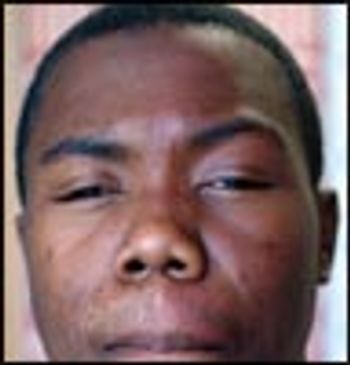
Migraine
Latest News
CME Content


In many patients, episodic migraines increase in frequency and transform into a refractory pattern.

What are the factors that underlie the transformation of episodic migraine to refractory migraine? Dr Susan Hutchinson explains.

We have long known that many adolescents have chronic pain. A new study highlights just how widespread it is-and the significant impact it can have.

A bad ("sick" or killer) headache is usually a migraine if underlying organic causes of pain are ruled out.

Sixteen-year-old African American boy with progressive loss of vision in the left eye over 2 weeks. He also had pain around the left orbit with some radiation to the temple. His mother reported that one side of his face appeared to be more flushed when he exerted himself; he had not seen a physician for this problem. He had no seizures or hemiparesis and was cognitively intact.

For more than a week, a 74-year-old man has had diminished vision in his left eye. He reports that the problem started acutely with a sensation of flashing lights in the affected eye, followed by the presence of dark floaters for several days.

What underlying disorders should primary care clinicians be alert for in patients with migraine?

How will your practice manage the coming “tsunami” of older patients as the baby boomers enter their golden years?

I have found that most of my patients with celiac disease actually have to convince their own physicians that they have the disorder.

Migraine and chronic daily headache may be risk factors for the development of complex regional pain syndrome, according to the results of a study led by B. Lee Peterlin, DO, assistant professor of neurology, Drexel University College of Medicine in Philadelphia.

The risk of ischemic stroke may be twice as high in patients who experience migraine with aura as in those who have migraine without aura, according to results of a systematic review and meta-analysis.

Did Pablo Picasso suffer from migraine? And did these episodes influence his artwork? Not likely, said Joost Haan, MD, PhD, a member of the department of neurology at Leiden University Medical Centre, Leiden, the Netherlands. He discussed migraine and the works of master painters at the 14th annual International Headache Congress in Philadelphia.

Results of a landmark study showed that onabotulinumtoxinA effectively reduced headache symptoms, episodes, disability, and health-related quality of life in patients with chronic migraine.

Patients with migraine are more likely than nonmigraineurs to experience cardiovascular events, according to recent results of the American Migraine Prevalence and Prevention Study.

Patients with migraine accompanied by depression or anxiety disorders had greater improvements in headache-related disability than those without a psychiatric disorder, according to results of the Treatment of Severe Migraine trial.

About 20% of soldiers returning from Iraq and Afghanistan who have a history of concussion or blast exposure experience chronic daily headache, according to a results of study presented at the 14th annual International Headache Congress in Philadelphia.

The portrayal of headache in film may contribute to patients’ misconceptions and fears about their illness, according to Bert B. Vargas, MD, clinical professor of neurology at the Mayo Clinic in Phoenix.

Tonabersat is effective in the prophylaxis of aura in patients with migraine, according to a recent study led by Jes Olesen, MD, a professor of neurology at the Danish Headache Center at Glostrup Hospital, University of Copenhagen, Glostrup, Denmark.

Patients with migraine are more likely than nonmigraineurs to have temporomandibular disorder (TMD). According to the results of a new study presented at the 14th annual International Headache Conference in Philadelphia, TMD may also be associated with increased headache frequency.

It is only within the past 40 years that the term "migraine art" was introduced; yet artists may have been creating works inspired by migraine aura since the Stone Age. Early depictions of migraine continue to influence newer artists with this illness. This is a natural progression that is common in all types of art, according to Klaus Podoll, MD, senior physician in the department of psychiatry and psychotherapy, University Hospital Aachen, RWTH Aachen University, Germany. But Dr Podoll has found that artists with migraine are often particularly attracted to the works of other artists who share their migraine experiences. These shared experiences "act like a filter," contributing to the an artist's perspective and leading to "elective affinities between migraine-inspired artists," he said.

The results of a meta-analysis indicate that intensive glycemic control significantly reduces the risk of coronary events in patients with type 2 diabetes mellitus. The meta-analysis, conducted by Ray and colleagues,1 included 5 randomized controlled trials that compared intensive with standard glucose-lowering regimens in more than 33,000 patients. The general treatment protocols are shown in the Table.

Medication spend for workers’ compensation claims continues to increase despite decreases in overall occupational injury rates. Medication costs increased by 5.4% in 2008 following a 3.3% rise in 2007 (Cover Figure), according to findings of the 2009 Annual Drug Trends Report for Workers’ Compensation. The report was compiled and analyzed by PMSI, Tampa, Fla.

About 50% of pregnanciesin the United States areunplanned.

The total direct and indirect costs for treating patients with chronic migraines (CM) are 2.6 times higher than costs associated with episodic migraine (EM). Containing those costs through better management of the illness should be a priority, according to migraine researchers who led a nationwide study comparing the costs of CM and EM as part of the American Migraine Prevalence and Prevention (AMPP) Study.






























































































































